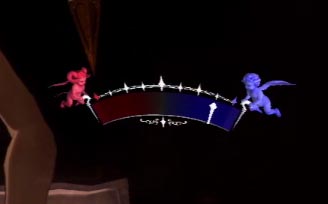App games may play a huge role in the future of gaming. Whether or not this medium becomes a widely accepted art form may heavily depend on how app games develop.
In my previous post, I discussed how app games on a whole are not as immersive as games for consoles or computers. But what if app games changed? What could happen if an app game broke away from the norm and tapped in to the full power of this medium? Games might finally break through the judgment of the media and be accepted as a true art form.
The reason would be the accessibility. Right now, video games are expensive to play. You need a console or a powerful PC to play a lot of current games, and most classic games have become almost impossible to find, let alone play.

Source: http://gamingrockson.blogspot.com/2012/09/wii-u-games-priced-at-60.html
We all know that this hobby isn’t cheap. So unless things change in the mainstream game market, the cheapness of apps may be needed to allow this medium to grow.
I’ve talked to people who think games are a waste of time, that there is nothing they can do that a book or movie can’t, and I want so badly to sit them down to play Journey, Mass Effect 2, and The Walking Dead and say, “This is what our medium is capable of.” If only it were that simple. These people don’t have consoles or $1000 computers, and the price of the games themselves isn’t cheap.
But think about how many people have smart phones. If someone made an app game that had the power of those marvelous games, something that made you think differently, that made you live your actions and experience a story, then the accessibility of that game could very well turn all conceptions of games on their heads.

Source: http://guides.gamepressure.com/thewalkingdead/guide.asp?ID=16773
If an app game could make you think about the idea of mercy, what it means to be human, this medium would only benefit.
An easily-accessible game like that could reshape the entire world’s view on gaming.




